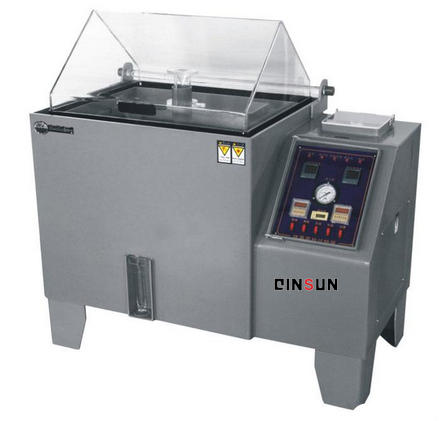- Qinsun Instruments Co., Ltd.
- Tell:+86-21-6780 0179
- Phone:+86-17740808215
- Address:No. 2578 Minhang District Gu Dai Road, Shanghai
- Contact:Mr. Li
- QQ:846490659
Demystifying the Factors Affecting Salt Spray Corrosion Test

Salt spray corrosion test is a test method used to test the corrosion resistance of materials, coatings or products. The following are factors that may affect the test results in the salt spray corrosion test:
1. Salt water preparation: The preparation of salt water for the salt spray corrosion test is very important, and the quality of the salt water will directly affect the results of the salt spray corrosion test. Purified water and qualified salt are required to prepare brine.
2. Salt spray corrosion test time: Different products, coatings or materials require different test times. If the test time is too short, it may not accurately reflect the real corrosion status of materials and coatings, resulting in inaccurate test results.

3. Temperature: Temperature is another factor affecting the salt spray corrosion test. Too low or too high temperature will affect the accuracy of test results, so it is necessary to control the room temperature between 15-35 degrees Celsius.
4. Humidity: The influence of humidity on the salt spray corrosion test is equally important. Excessive humidity may affect the accuracy of the test results, so it is necessary to control the appropriate humidity under the test conditions.
5. Types of test samples: Different test samples will have different effects on test results. For example, samples of thin films and baked varnishes may respond differently to salt spray corrosion.
6. Sample treatment: Before conducting the salt spray corrosion test, the surface treatment of the sample also needs attention. If there are impurities, grease, oxides and other substances on the surface of the sample, it may affect the test results.
Therefore, these factors need to be fully controlled and considered when conducting salt spray corrosion tests to ensure the accuracy of test results.





